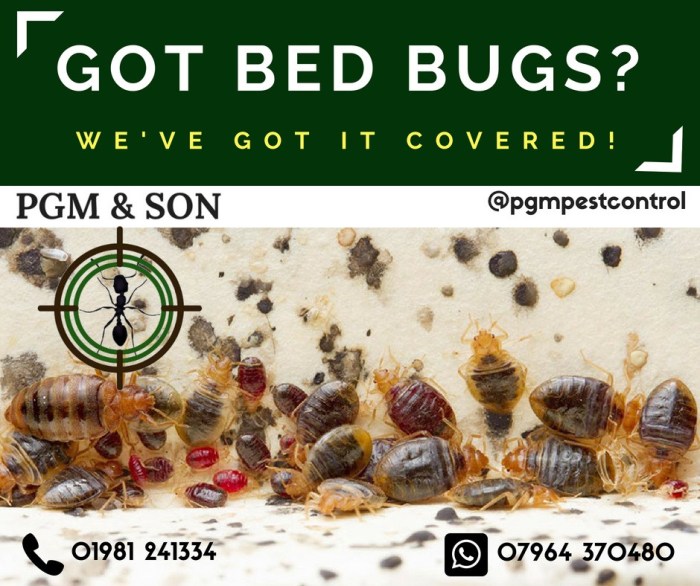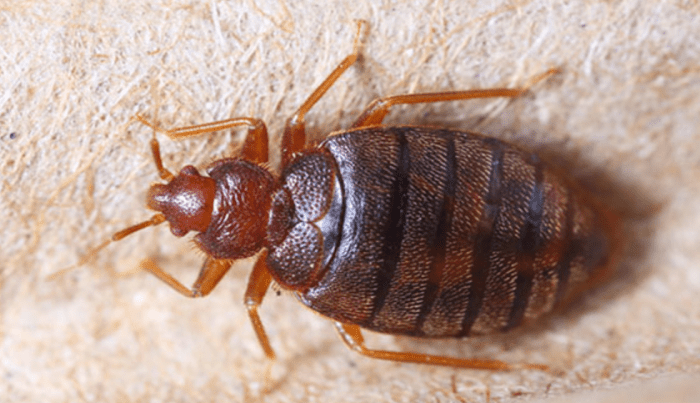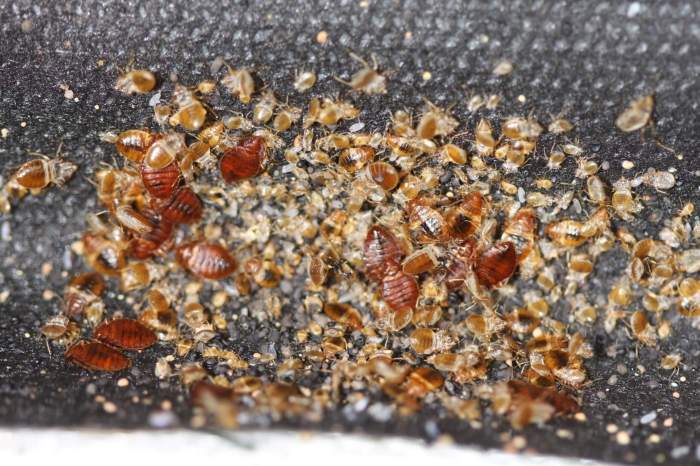As the hospitality industry grapples with the persistent issue of bed bugs, bed bug registry hotel chains are emerging as a powerful tool for both consumers and hotels. These registries provide a wealth of information to help travelers make informed decisions about their hotel stays and assist hotels in preventing and addressing infestations.
In this comprehensive guide, we delve into the world of bed bug registry hotel chains, exploring their purpose, function, and impact on the hotel industry and consumer protection. We’ll also uncover the latest technologies used for bed bug detection and discuss industry best practices for prevention.
Bed Bug Registry Hotel Chains

Bed bug registries are online databases that allow travelers to report bed bug infestations in hotels. These registries help travelers make informed decisions about where to stay and provide hotels with valuable information about the prevalence of bed bugs in their properties.
Statistics and Prevalence
According to a recent study by the National Pest Management Association, bed bugs are the most common pests in hotels. The study found that over 50% of hotels have reported bed bug infestations in the past year.
How Hotels Use Bed Bug Registries
Hotels use bed bug registries to track and prevent infestations. When a guest reports a bed bug infestation, the hotel can use the registry to identify other guests who may have been exposed to the pests. The hotel can then take steps to prevent the infestation from spreading, such as inspecting rooms, treating infested areas, and educating staff about bed bug prevention.
Hotel Liability and Bed Bug Infestations

Hotels have a legal obligation to provide their guests with a safe and habitable environment, which includes preventing and addressing bed bug infestations. Failure to do so can result in legal liability for the hotel.
In recent years, there have been numerous lawsuits and legal cases involving bed bug infestations in hotels. In one notable case, a woman was awarded $1.2 million in damages after she was bitten by bed bugs in a hotel room.
The jury found that the hotel was negligent in failing to prevent the infestation and in failing to properly address the woman’s complaints.
For a luxurious beach experience, consider visiting Astir Beach, as highly rated on TripAdvisor: astir beach tripadvisor .
Hotel Policies and Procedures, Bed bug registry hotel chains
Hotels should have clear policies and procedures in place for handling bed bug complaints. These policies should include:
- A process for inspecting rooms for bed bugs
- A protocol for treating rooms that are found to be infested
- A policy for compensating guests who are bitten by bed bugs
Consumer Protection and Bed Bug Registries
Bed bug registries play a crucial role in protecting consumers by providing transparent information about bed bug infestations in hotels. These registries empower consumers to make informed decisions about their hotel stays and minimize the risk of encountering bed bugs.
Tips for Consumers
- Check the registry before booking:Visit bed bug registries like BedBugRegistry.com or SaferStay.org to research hotels in your destination. Look for any recent reports of bed bug infestations.
- Read reviews:Read reviews from other travelers on sites like TripAdvisor or Google Maps. Look for mentions of bed bugs or other pest problems.
- Inspect your room:Upon arrival, thoroughly inspect your hotel room for signs of bed bugs. Check the bed, headboard, curtains, and other areas where bed bugs may hide.
- Report any infestations:If you find bed bugs in your room, report it to the hotel management immediately. Also, consider reporting the infestation to a bed bug registry to alert other travelers.
Role of Government Agencies
Government agencies have a responsibility to regulate bed bug registries and protect consumers. They can ensure the accuracy and transparency of the information provided by registries and take action against fraudulent or misleading practices.
Looking for the perfect beach day out? Check out our guide to the best beaches within a two-hour drive from you: beach two hours away from me . For a romantic getaway, explore our list of beach for couples near me . If you’re planning a weekend escape, don’t miss our recommendations for beaches for weekend getaway .
Hotel Industry Best Practices for Bed Bug Prevention

The hospitality industry has a responsibility to provide guests with a safe and comfortable stay, free from the discomfort and health risks associated with bed bugs. Implementing effective bed bug prevention measures is crucial to maintaining guest satisfaction and protecting hotel reputations.
To prevent bed bug infestations, hotels should adopt industry-leading practices that encompass proactive measures, staff training, and collaboration with pest control professionals.
Inspection and Monitoring
- Regularly inspect guest rooms, common areas, and staff quarters for signs of bed bugs, including live bugs, eggs, or fecal stains.
- Use bed bug detection devices, such as interceptors or mattress covers, to monitor for activity.
Housekeeping and Sanitation
- Thoroughly vacuum and clean guest rooms, paying attention to crevices, seams, and upholstered furniture.
- Wash bedding and linens in hot water and dry them on high heat to kill bed bugs and eggs.
Staff Training
- Train staff to identify signs of bed bugs and understand proper reporting procedures.
- Educate staff on the importance of sanitation and hygiene practices to prevent bed bug infestations.
Pest Control Partnerships
- Partner with licensed and reputable pest control companies for regular inspections and treatments.
- Implement integrated pest management (IPM) strategies that combine chemical and non-chemical methods to control bed bugs.
Guest Education
- Inform guests about bed bugs and provide tips on how to prevent them from entering their rooms.
- Encourage guests to report any suspected bed bug activity promptly.
Emerging Technologies and Bed Bug Detection
The hotel industry is constantly evolving, and so are the technologies used to detect and eliminate bed bugs. In recent years, several innovative devices and methods have been developed to help hotels identify and treat infestations quickly and effectively.
Automated Detection Systems
- Canine Detection:Trained dogs can sniff out bed bugs with a high degree of accuracy. They are often used to inspect hotel rooms and other areas where bed bugs are likely to be found.
- Heat Detection:Thermal imaging cameras can detect the heat emitted by bed bugs, making them easy to spot even in hidden areas.
- Acoustic Detection:Bed bugs make a distinctive clicking sound when they move. Acoustic detection devices can listen for these sounds and alert hotel staff to the presence of an infestation.
Chemical Treatments
- Insecticides:Chemical insecticides can be used to kill bed bugs on contact. However, they can be harmful to humans and pets, so they must be used carefully.
- Fumigation:Fumigation is a process of using a gas to kill bed bugs. It is a very effective method, but it can be expensive and disruptive.
- Heat Treatment:Heat treatment involves raising the temperature of a room to a level that kills bed bugs. It is a safe and effective method, but it can be time-consuming.
Physical Removal
- Vacuuming:Vacuuming can remove bed bugs and their eggs from surfaces. However, it is important to use a vacuum cleaner with a HEPA filter to prevent the spread of bed bugs.
- Steam Cleaning:Steam cleaning can kill bed bugs and their eggs. It is a safe and effective method, but it can be time-consuming.
- Mattress Encasements:Mattress encasements can prevent bed bugs from getting into mattresses. They are a simple and effective way to protect your mattress from infestation.
The Impact of Emerging Technologies on the Hotel Industry and Consumer Protection
The development of new technologies for detecting and eliminating bed bugs has had a significant impact on the hotel industry. These technologies have made it easier for hotels to identify and treat infestations quickly and effectively, which has helped to protect guests from the health risks associated with bed bugs.
In addition, these technologies have helped to improve the reputation of the hotel industry by demonstrating that hotels are taking the issue of bed bugs seriously.
Ultimate Conclusion: Bed Bug Registry Hotel Chains
In conclusion, bed bug registry hotel chains are an invaluable resource for both consumers and hotels. By empowering consumers with information and providing hotels with tools for prevention and management, these registries play a crucial role in safeguarding the health and well-being of travelers and upholding the reputation of the hospitality industry.


